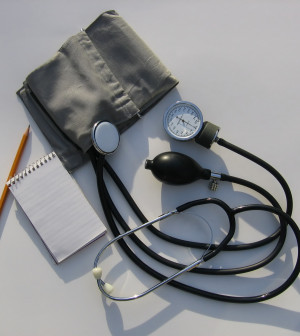- Could Your Grocery Store Meat Be Causing Recurring UTIs?
- Are You Making This Expensive Thermostat Error This Winter?
- Recognizing the Signs of Hypothyroidism
- 10 Strategies to Overcome Insomnia
- Could Artificial Sweeteners Be Aging the Brain Faster?
- Techniques for Soothing Your Nervous System
- Does the Water in Your House Smell Funny? Here’s Why
- Can a Daily Dose of Apple Cider Vinegar Actually Aid Weight Loss?
- 6 Health Beverages That Can Actually Spike Your Blood Sugar
- Treatment Options for Social Anxiety Disorder
Treating Depression Might Help Stem Heart Woes: Study

Effective treatment of depression seems to reduce a person’s risk of heart disease, according to a new study.
Depression is a known risk factor for heart disease, but how treatment for depression affected that risk was unclear, researchers said.
This study of 7,550 people found that effective treatment for depression could lower a patient’s heart risks to the same level as those who never had depression, reducing their chances of stroke, heart attack, heart failure and death.
The risk of major heart problems was: 4.6 percent among those successfully treated for depression: 4.8 percent among those without depression; 6 percent among those with depression who did not respond to treatment; and 6.4 percent among those who developed depression during the study.
The findings from the researchers at the Intermountain Medical Center Heart Institute in Salt Lake City were to be presented Saturday at an American College of Cardiology meeting in Chicago. Studies presented at meetings are usually considered preliminary until published in a peer-reviewed medical journal.
“Our study shows that prompt, effective treatment of depression appears to improve the risk of poor heart health,” Heidi May, a cardiovascular epidemiologist, said in medical center news release.
“With the help of past research, we know depression affects long-term cardiovascular risks, but knowing that alleviating the symptoms of depression reduces a person’s risk of heart disease in the short term, too, can help care providers and patients commit more fully to treating the symptoms of depression,” she said.
“The key conclusion of our study is: If depression isn’t treated, the risk of cardiovascular complications increases significantly,” May said.
Further research is needed to determine which types of depression treatment are most effective in reducing heart risks, the researchers said.
More information
The U.S. National Institute of Mental Health has more on depression.
Source: HealthDay
Copyright © 2026 HealthDay. All rights reserved.










